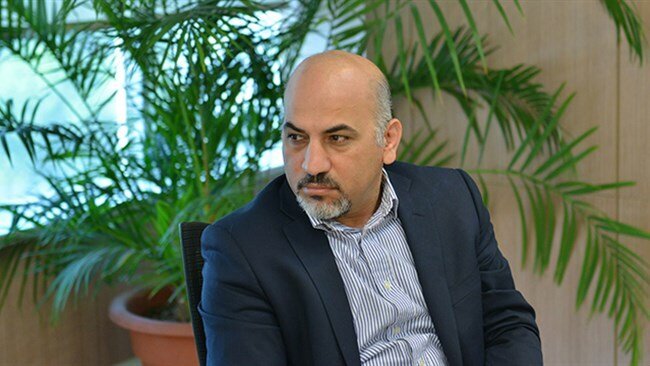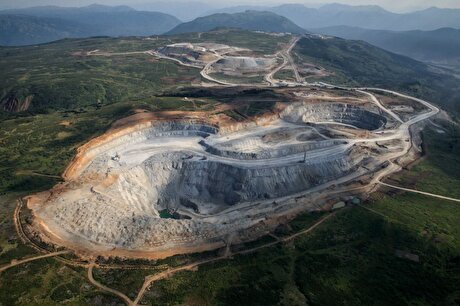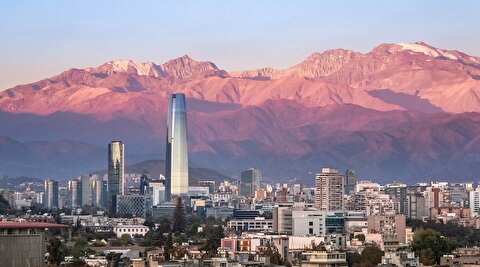
1400 budget bill: how realistic the draft is?

The proposed budget for the Iranian calendar year 1400, which starts on March 21, 2021, amounted to about 24.357 quadrillion rials (about $579.928 billion at the official rate of 42,000 rials), with a 20-percent rise from the current year’s approved budget.
Considering the recent efforts made by the Iranian government for distancing the economy from its long-lasting reliance on oil revenues, officials, experts, and scholars expected the next year’s budget bill to be less reliant on oil than the previous years, however, to everyone’s surprise, over 23 percent of the incomes provisioned in the drafted bill were seen to come from oil sales.
Based on the draft of the national budget bill, the government expects to sell 2.3 million barrels per day (bpd) of crude oil and gas condensate in the next Iranian calendar year, with oil at $40 per barrel.
This has raised criticism among the country’s experts and officials, saying that the upcoming year’s budget bill has been drafted based on unrealistic expectations and is not the expected recipe for an oil-free economy.
In this regard, the Tehran Times held talks with Economic and Energy Expert Hamidreza Salehi, who is the Head of Iran Chamber of Commerce, Industries, Mines and Agriculture (ICCIMA)’s Energy Committee, to see how much the oil revenues envisaged in the mentioned bill are practical and achievable, and what solutions can be applied to compensate for the potential deficits in the future.
Oil, Biden and chances of sanctions removal
A look into the figures presented in the budget bill for the next Iranian calendar year reveals that recent developments in the White House has been taken into consideration in preparing the bill.
Although, the removal of the sanctions could open the doors for the Iranian oil to come back into the global market, but it is not going to be a fast process, Salehi said.
“Even if Biden chooses to bring the U.S. back to the nuclear deal and even if he intends to remove some or even all the sanctions on the Iranian oil industry, it won’t happen overnight,” he stressed.
The government, clearly, has thought otherwise and expects to start the next year with its oil flowing the global markets. This has led to high expectations for oil incomes based on which the expenses have also been risen.
According to the expert, one of the major factors that every government takes into account for drafting their budget bills is the balance between incomes and expenses, something that is neglected in the drafting of Iran’s national budget bill in recent years.
Considering the world’s economic condition in the face of the coronavirus pandemic and numerous other factors that are expected to affect Iran’s economy in the coming Iranian calendar year, increasing the government budget (expenses and incomes) by about 47 percent is unrealistic and impractical.
Tax and other sources of income
As the second major source of income for the government, tax revenues are also increased drastically in the next year’s budget bill.
Asked about the practicality of the figures in this area, Salehi noted that in the next year’s budget bill the government expects to earn 3.17 quadrillion rials (about $75 billion at the official rate of 42,000 rials) from tax and sources other than oil (like selling assets, issuing bonds and etc.).
As for the tax revenues, the figure has increased by nearly 50 percent which considering the country’s current economic condition is again unrealistic because most of the businesses and factories have been under financial pressures due to the pandemic and to expect them or people to pay more tax is not practical, he explained.
The government should, in fact, focus more on other sources of income, like issuing bonds or selling its assets which are both very good and practical ways of producing revenue without the risk of inflation.
Solutions in case of potential deficit
According to Salehi, considering the government’s optimistic approach in drafting the budget bill, we should expect severe budget deficit in the next Iranian calendar year. So to prevent this and to alleviate the situation, the government can amend the bill using the experiences of the current year’s almost oil-free budget.
This year, although a big portion of the incomes foreseen in the budget bill was reliant on oil, but due to the drastic fall of the global oil prices, the pandemic, and also the U.S. sanctions, the revenues provisioned in the bill were not realized and the government managed to make adjustments and use other sources like privatization for generating revenue.
So this can be, once again, used for compensating the next year’s shortcomings; the government can issue bonds, or downsize (by real privatization) to earn capital, Salehi stressed.
“Budget deficit will definitely result in inflation; all economists agree on this, so solid steps must be taken to prevent deficits,” he added.
A part of the oil revenues provisioned in the next year’s budget bill is expected to be earned by offering oil via salaf bonds in the domestic market, and this is a much more practical way for generating income and preventing inflation.
Yet another solution for preventing budget deficit could be the removal of unnecessary energy subsidies to provide energy carriers on their real prices.
This could generate additional income for the government and also prevent the excessive consumption of fossil fuels in the country that would also have positive consequences like the reduction of air pollution and maintaining the environment.


Gold price eases after Trump downplays clash with Fed chair Powell

Copper price hits new record as tariff deadline looms

Brazil producers look to halt pig iron output as US tariff threat crimps demand

Three workers rescued after 60 hours trapped in Canada mine

Gold price could hit $4,000 by year-end, says Fidelity

US targets mine waste to boost local critical minerals supply

Energy Fuels surges to 3-year high as it begins heavy rare earth production

Glencore workers brace for layoffs on looming Mount Isa shutdown

Chile’s 2025 vote puts mining sector’s future on the line

Kinross divests entire 12% stake in Yukon-focused White Gold

Gold price could hit $4,000 by year-end, says Fidelity

Southern Copper expects turmoil from US-China trade war to hit copper

Ramaco Resources secures five year permit for Brook rare earth mine in Wyoming

Column: EU’s pledge for $250 billion of US energy imports is delusional

Finland reclaims mining crown as Canada loses ground

Gold price down 1% on strong US economic data

Trump’s deep-sea mining push defies treaties, stirs alarm

Chile’s 2025 vote puts mining sector’s future on the line

Gold price retreats to near 3-week low on US-EU trade deal

Gold price could hit $4,000 by year-end, says Fidelity

Southern Copper expects turmoil from US-China trade war to hit copper

Ramaco Resources secures five year permit for Brook rare earth mine in Wyoming

Column: EU’s pledge for $250 billion of US energy imports is delusional

Gold price down 1% on strong US economic data

Trump’s deep-sea mining push defies treaties, stirs alarm

Chile’s 2025 vote puts mining sector’s future on the line

Gold price retreats to near 3-week low on US-EU trade deal

China’s lithium markets gripped by possible supply disruptions














